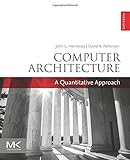- Computer architecture or CPU design book covering modern designs with their tradeoffs
https://www.amazon.com/Computer-Architecture-Quantitative-Ap...
- Introduction to Verilog or VHDL (languages for hardware) maybe on FPGA's or well-known boards
https://www.amazon.com/Programming-FPGAs-Getting-Started-Ver...
- High Speed Digital Design (many recommended it)
https://www.amazon.com/High-Speed-Digital-Design-Handbook/dp...
- Cookbook with many examples for FPGA's
I don't have one. Most with these titles are expensive. One that looked promising had bad reviews. I'll leave it to HN to fill in the blanks.
- High-level synthesis
Most exciting one I remember when I stopped researching this stuff was Synflow. I don't know if they're still around.
Before that, I had saved Baranov's work which showed how to turn Abstract, State Machines into actual hardware. It was like a how-to on high-level synthesis that he used commercially at Synthezza. I still share them periodically in case someone wants to build an OSS version. I also saw ASM's used in verifying compilers and hardware in separate work. There's a good chance someone can turn many things into a unified, field theory of sorts using ASM's.
https://www.amazon.com/Finite-State-Machines-Algorithmic-Com...
https://www.linkedin.com/pulse/second-ebook-samary-baranov-h...
What you are after are books/courses on "architecture", I think. A classic book on the subject is Hennessy & Patterson.
https://www.amazon.com/Computer-Architecture-Sixth-Quantitat...


1. https://www.amazon.com/Write-Great-Code-2nd-Understanding/dp...
2. https://www.amazon.com/Write-Great-Code-Low-Level-High-Level...
3. https://www.amazon.com/Computer-Organization-Design-RISC-V-A...
4. https://www.amazon.com/Computer-Architecture-Quantitative-Ap...
5. https://www.amazon.com/Computer-Organization-Design-MIPS-Arc...
6. https://www.amazon.com/Computer-Organization-Design-ARM-Arch...
7. https://www.amazon.com/Models-Computation-Introduction-Compu...